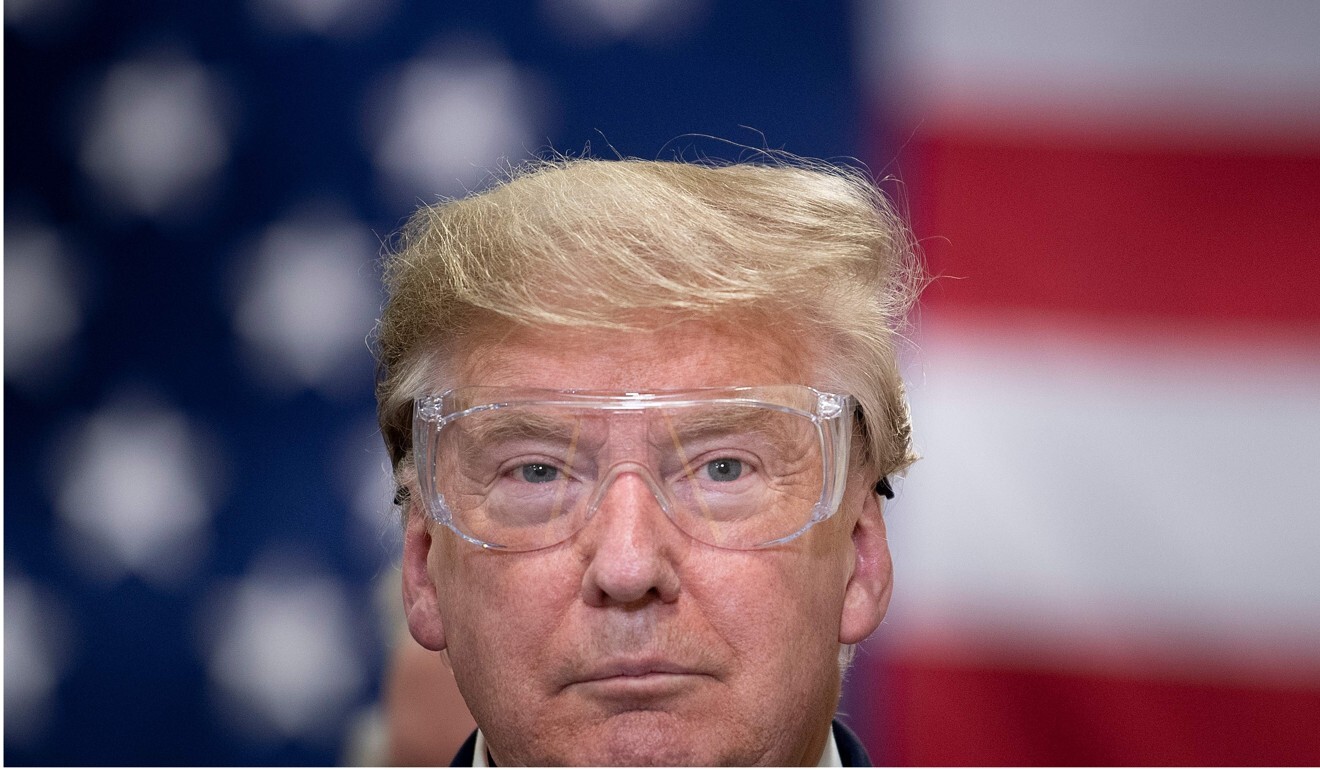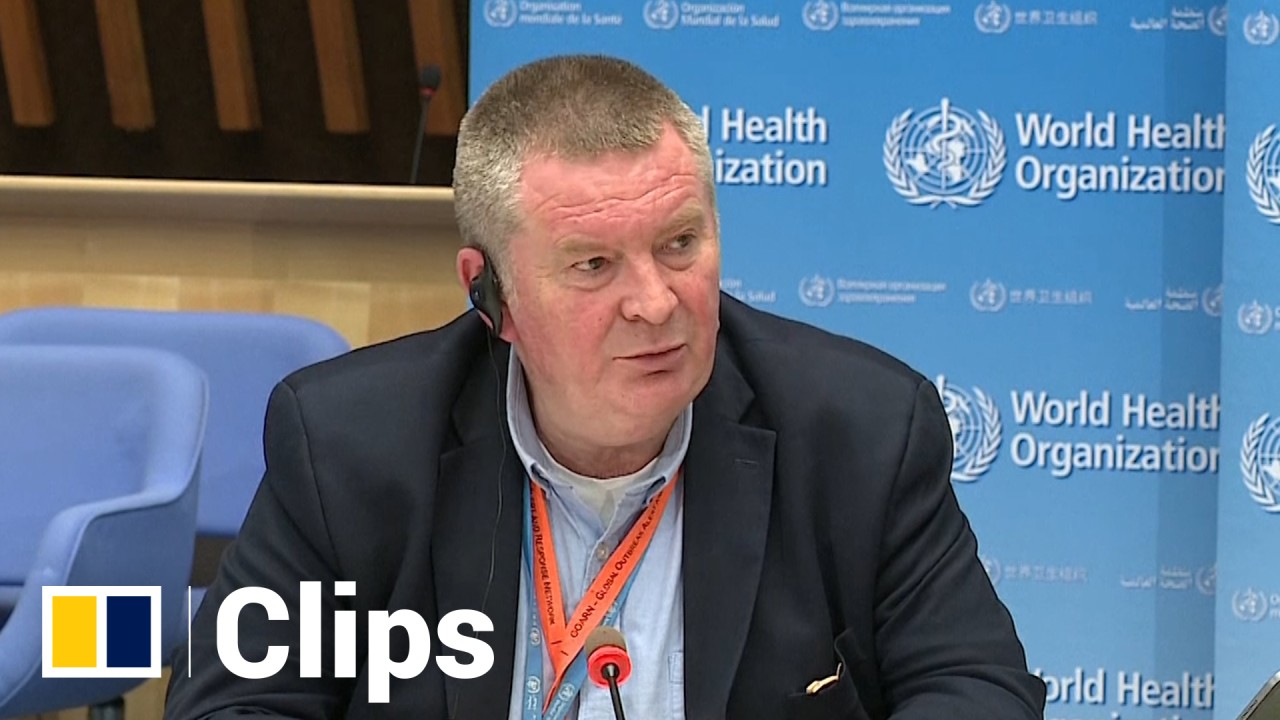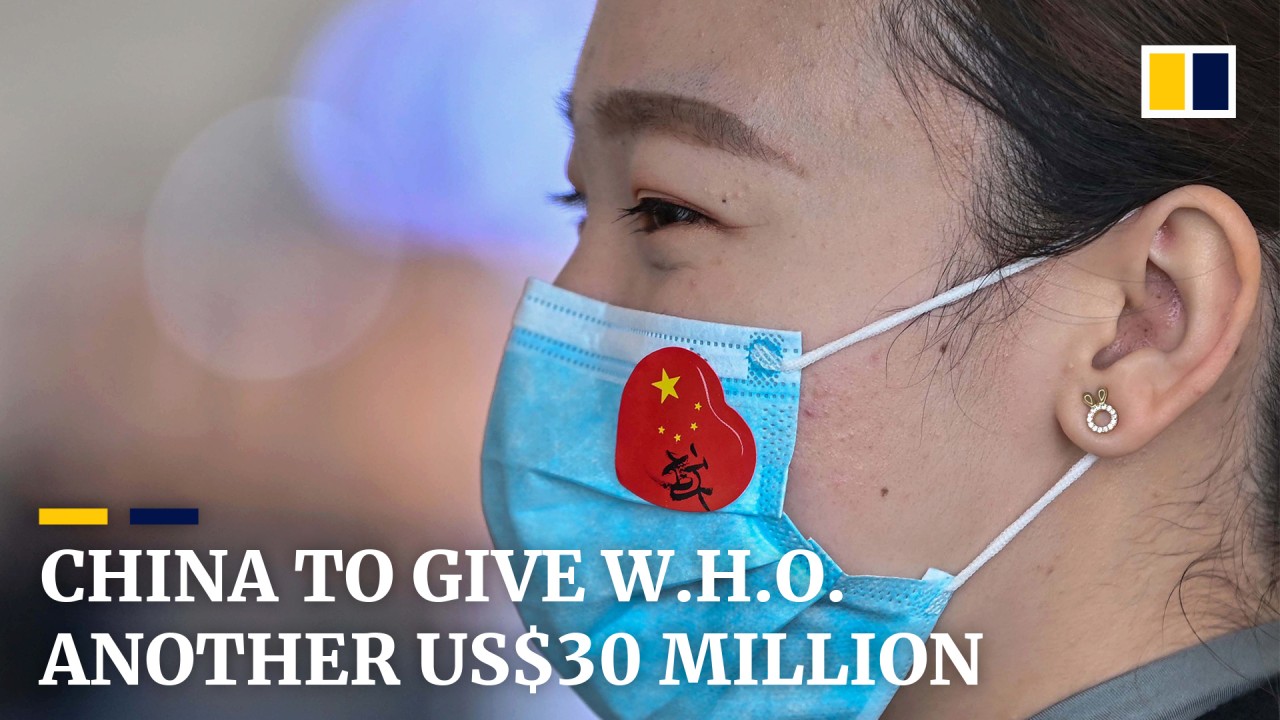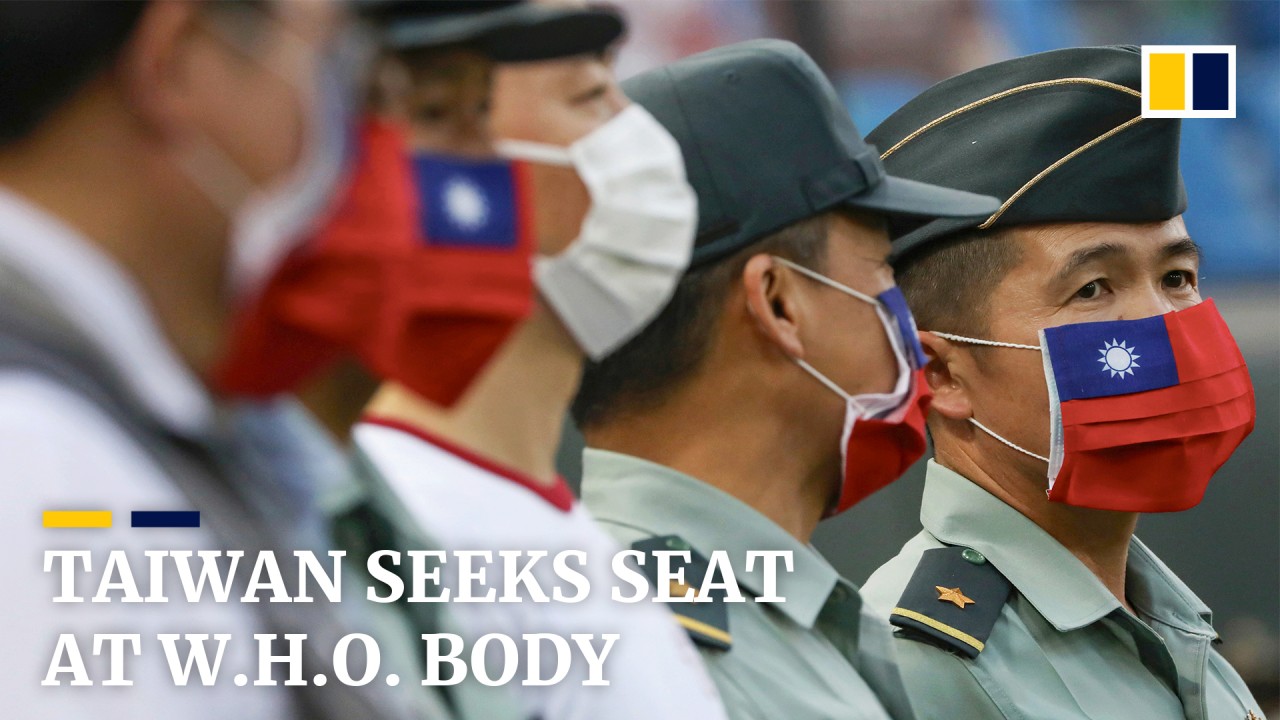Battle looms at WHO meeting as pressure mounts on China over coronavirus inquiry
- Countries including US expected to pursue investigation into Beijing’s handling of pandemic when decision-making body meets
- It could refer the dispute to the International Court of Justice, but experts say that’s unlikely – and the ICJ wouldn’t be able to enforce a decision

The World Health Organisation has been on the front line coordinating the fight against the Covid-19 pandemic. When its decision-making body gathers, virtually, for its annual meeting on Monday, it will have another battle on its hands, as tensions escalate between China, the United States and other countries over Beijing’s response to the outbreak.
The coronavirus will be the focus for the World Health Assembly meeting, to be attended by all 194 WHO member states plus observers, and where policies and budgets are reviewed and approved.
But all eyes will be on how countries – including the US, Australia, Canada, France and Germany – pursue an investigation into China’s handling of the pandemic within the framework of the global health body. That could include taking the Chinese government to the international court.
Leaders of these countries have already made clear that they want an inquiry, including investigating the origin of the virus, whether it was initially covered up by China, and if Beijing was slow to tell the world that the virus was being transmitted between humans.
The WHO has itself been under fire, attacked for praising China’s pandemic response as “transparent” despite Beijing’s suppression of whistle-blowers and information at the start of the outbreak.
Since it was first reported in the Chinese city of Wuhan late last year, the coronavirus has killed more than 300,000 people and infected over 4.5 million worldwide, with the US the worst-hit country while China has largely brought its outbreak under control.
Meanwhile the US-China blame game has been ramping up, with US President Donald Trump saying China should face consequences if it was found to be “knowingly responsible”, tweeting that the world had been “hit by the plague from China”, and suggesting the virus was linked to a Wuhan laboratory. Beijing rejected those accusations and said it supported WHO efforts to investigate the virus origin but not countries “politicising” the issue and pushing for an inquiry “with a presumption of guilt”.

Under the WHO constitution, the global health agency can refer unresolved disputes to the International Court of Justice in The Hague, the main legal organ of the United Nations. But health and legal experts said that was unlikely – and even if it did happen, the ICJ would not be able to enforce a decision.
“The WHO has never taken another state to the ICJ, and I do not anticipate that,” said Steven Hoffman, professor of global health, law and political science at York University’s Global Strategy Lab in Toronto. “If it happens it will be unprecedented.”
Atul Alexander, assistant professor of law at West Bengal National University of Juridical Sciences, said it would be impossible to enforce a decision by the ICJ as it would need to be enacted by the UN Security Council, where China has veto power as one of five permanent members.
“China would have to consent to the jurisdiction of the ICJ, which is never going to happen,” Alexander said.
“This is similar to the case of the arbitrary tribunal on the South China Sea dispute with the Philippines, where China did not participate. The decision was given against China, but the arbitral decision is not enforceable,” he said. “So the nature of international law is such that decisions could go against China, but it’s never enforceable under international law.”
The last time the Chinese government was sued in the international court was in 2016, when the Permanent Court of Arbitration ruled in favour of the Philippines over the South China Sea. It said Beijing’s territorial claims to the area lacked legal basis and were contrary to an international maritime convention. Beijing did not take part in the trial and has rejected the legitimacy of the ruling.
Hoffman said even if a case was filed at the ICJ over the coronavirus, the court was not likely to hear it.
“There are many cases lining up and they only hear two to four cases a year,” he said.
However, the International Health Regulations – enacted and adopted by all WHO members in 2005 – may offer a means of dispute resolution, according to Hoffman. The IHR suggests resolving matters related to its interpretation or application through negotiation, mediation and conciliation.
“Disputes may also be settled by referral to the director general of the WHO or by arbitration, if agreed to by all the parties to the dispute,” according to the IHR.
But Hoffman noted that no countries had agreed to resolve a matter through this mechanism so far.
“There are a lot of challenges as to how countries can successfully resolve disputes. Dozens of countries have violated regulations under the IHR in the Covid-19 pandemic and even back in the days during Ebola,” he said.
“When countries imposed targeted trade and travel restrictions on a particular country, it was already a clear violation of Article 43 of the IHR. There is no effective way to complain or seek recourse among countries. China has been subjected to such restrictions and in theory they can take those countries to the ICJ, but I also do not think they will,” he said.
Politicians in the US are trying other legal avenues. Last month, Missouri was the first state to sue the Chinese government. The lawsuit, filed in the US District Court for Eastern Missouri, alleges Beijing’s denials and cover-ups had led to the pandemic that caused “enormous loss of life, human suffering and economic turmoil”. Republican senators have also introduced a bill that would allow Americans to sue China for damages over harm caused by the disease.
China appears to be wary of potential escalation through legal means, warning those seeking to “abusively sue” the country that it was “preparing retaliatory measures”, according to hawkish state tabloid Global Times.
But Liao Fan, senior fellow with the Institute of International Law at the Chinese Academy of Social Sciences, did not see any legal grounds for countries to sue China over the pandemic, through either local or international courts.
“These moves [attempting to sue China] have been packaged as a ‘legal battle’ in this rhetorical war,” Liao wrote last month in Economic Information Daily, a newspaper run by official news agency Xinhua. “It should be very obvious even to the prosecuting groups or individuals that there is very little legal value in these calls for ‘repatriation’ or ‘accountability’ from a procedural or a practical angle.
“If a ‘legal battle’ aims to win the case, these ‘rhetoric battles’ are just for building a [political] campaign. As long as the rhetoric of ‘blame China’ or ‘make China compensate’ become a hot topic and get public attention, the goals of these people who provoke have already been achieved,” he said.
Gian Luca Burci, adjunct professor of international law at the Graduate Institute Geneva, said national lawsuits and unilateral actions by the US government would do more reputational than legal harm to China. “While there’s a low legal risk, there is a political and reputational risk here,” he said.
“Negative repercussions could be multifarious and damaging. China is concerned that there will be any kind of international investigation – China would have to consent to one, but it is not clear they would,” he said. “There is a need for a fact-finding mission to confirm what happened, and what went wrong, in China and around the world.”



